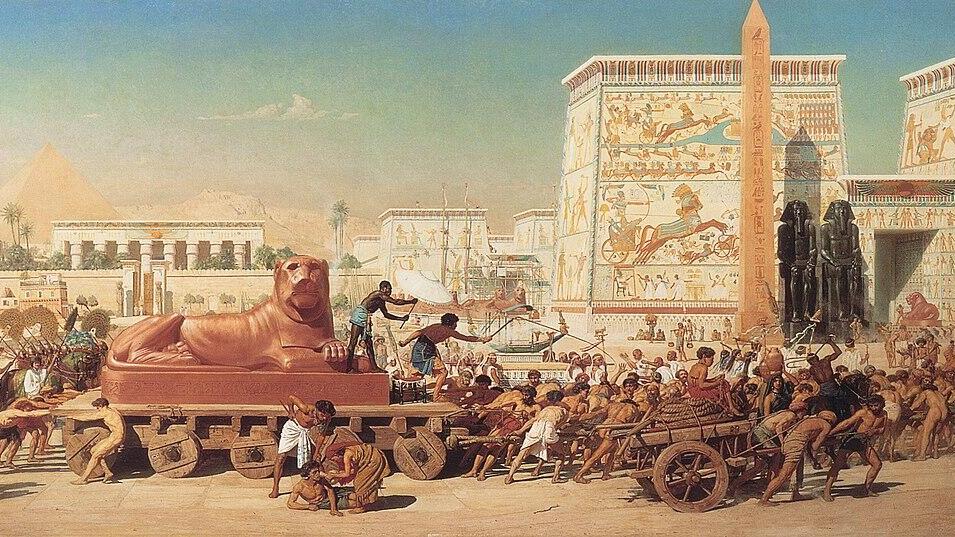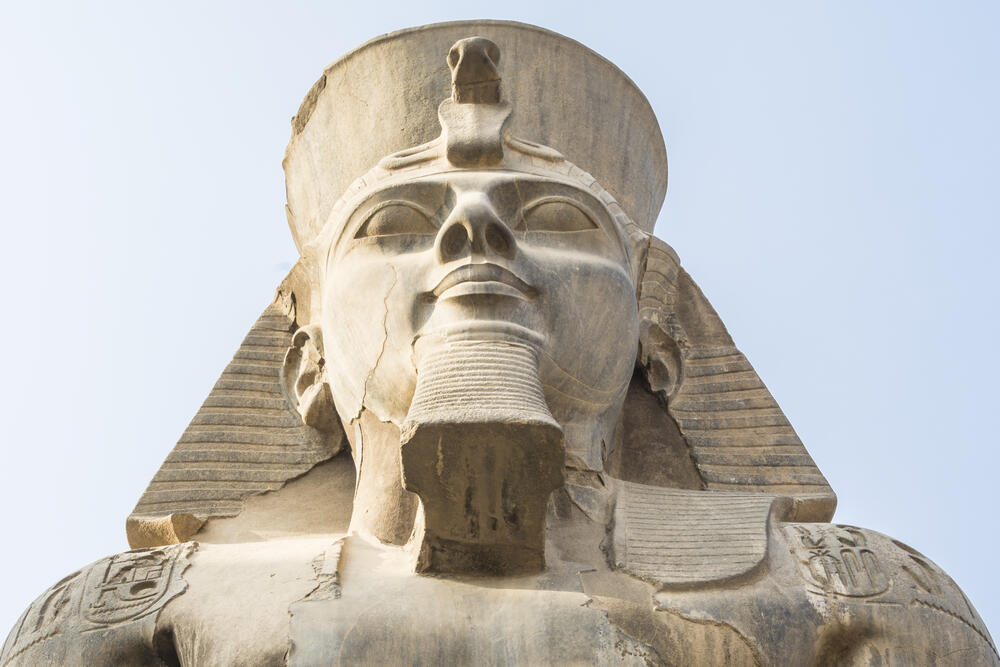The Jews were slaves in Egypt but they did not build the pyramids, even though this is what you might think based on the illustrations in most Haggadahs.
“The pyramids have nothing to do with the Bible, we didn’t build the pyramids,” says Prof. Joshua Berman, an associate professor at Bar-Ilan University’s Zalman Shamir Bible Department and author of Ani Maamin: Biblical Criticism, Historical Truth, and the Thirteen Principles of Faith, shattering the idea behind most Haggadah illustrations depicting a crew of Hebrew slaves hoisting giant limestone blocks to the nearest monumental construction site.

Many Egyptologists, historians and other scholars have debated the issue of Jewish slavery in Egypt since ancient times in a debate that still echoes in academic halls and history journals to this day. But the fact is that Jews don't really know that much about our hundreds of years as slaves in the Nile Delta.
In fact, the Ancient Egyptian sources available to us don’t mention anything specific about enslaved Jews, events documented in the Haggadah or even specific names, like the protagonist of the Passover story, Moses. Berman adds, however, that while ancient historical records of the Near East don’t mention Jewish slavery in Egypt per se, there was a great amount of well-documented accounts of slavery in the ancient Egyptian empire.
“All the Egyptian sources talk about the fact that they had slaves from everywhere,” he adds. “They relate to their slaves like slaveholders in 19th-century Antebellum America. No one referred to their slaves as ‘oh, this is the one from Cameroon or Niger’; They had a slur word they used for all of them, so we don’t expect to find specific references.”
5 View gallery
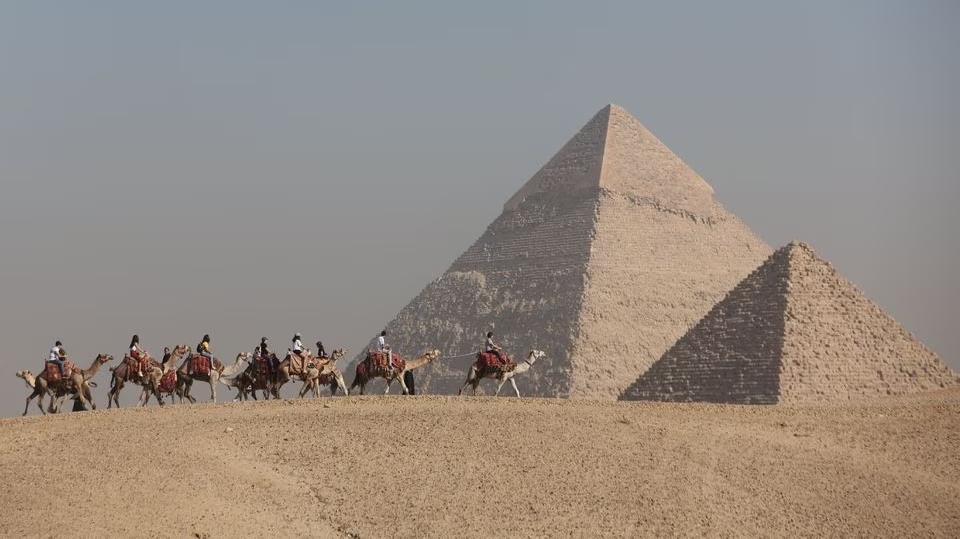

Tourists ride camels in front of the Great Pyramids plateau in Giza, Egypt December 11, 2022
(Photo: REUTERS/Amr Abdallah Dalsh)
“For the Egyptians, all slaves came from ‘the land of Canaan,’ which included for them Syria and Lebanon; they had a catchphrase for all of them,” he said.
Myth and history in Passover
Passover is the Jewish holiday celebrating freedom. Culminating in the Exodus from Egypt, in the traditional Haggadah, Jews are commanded to pass on to the next generation the hardships of the Israelite slaves under the yoke of the Egyptian Pharaoh who had ruled one of the greatest empires ever known in history. It’s a story of victory, but it’s also a story of the Jewish struggle against their enemies that has and still continues.
Egyptian sources may fail to illuminate the question of the Israelites’ period as slaves, but Jewish sources do discuss the matter. Exodus 1:1-5 describes Jacob’s migration to Egypt with his tribe, which numbered 70 people.
The biblical account reports that the Israelites flourished in the Egyptian lands and multiplied greatly, an issue Egypt’s new unnamed pharaoh viewed with concern and ordered them to be enslaved and tortured with forced labor. Then, in Exodus 1:11, we are told that "they built Pithom and Ramses as storage cities for Pharaoh.”
5 View gallery
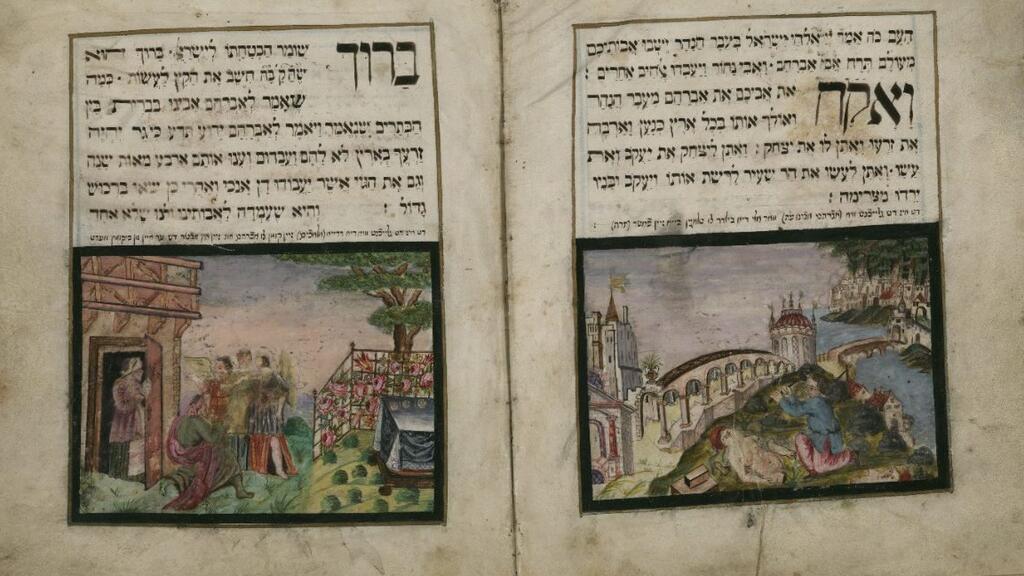

The Leipnik Darmstadt Haggadah, a lavishly illuminated manuscript from Germany written in 1733
(Photo: National Library of Israel)
“What’s important about that story for anyone trying to understand the historical background behind this is that, obviously, it’s rare for the Tanach (Hebrew Bible) to give us specific names like that of the pharaoh. What it does say is that the Israelites built two cities, Pithom and Ramses, which we know for sure was the capital city of Ramses II the Great, so that puts the enslavement in the 13th century BCE during the reign of the ruler who was considered as maybe the greatest pharaoh,” Berman explains.
Sources and perspectives
Ramses II’s rule over Egypt would mark a sound period for the arrival of Hebrew slaves into Egyptian lands, be it via conquest or fleeing to safety given the pharaoh’s intense fighting against the Hittites and several military campaigns against Syria. Some scholars have claimed that his capital city was built by Jewish slaves as a garrison from which to launch attacks on ancient Israel and Asia Minor.
“The ways in which scholars examine the historical background in the Exodus, if at all, which I think is reasonable but limited in what it can achieve, is that they start by reading what it says in the Torah and then go to all of the Egyptian sources we have and see if there’s anything there," Berman says.
“But there’s another way to do this by going the other way around, meaning once we’re familiar with the Egyptian sources – what does the Torah know about these sources? What we come across is that there’s a broad trend of what I’d call ‘cultural appropriation,’ that the Torah is deeply familiar with the Pharaonic writings of the New Kingdom (15-12 centuries BCE).”
Prof. Berman also noted that expressions stated in the Torah and Haggadah like that of “with a strong hand and an outstretched arm,” mentioned many times throughout the holy text in relation to the exodus, have been employed in the context of Pharaonic propaganda in Egypt in order to show that the Pharaoh’s power is great, but that of God’s supersedes it.
His greatest claim says the story of the Exodus and the Biblical poem Song of the Sea are very similar in nature to that of Ramses II’s Kadesh inscriptions that described his greatest achievement in winning over the Hittites in 1274 BCE, and that the Book of Deuteronomy fashions this tale of fit the bible in an act of cultural appropriation. The claim has gained wide academic attention and was reported in The Wall Street Journal.
Do the sources describe the daily lives of slaves in Egypt assuming a Hebrew population was enslaved there?
“Absolutely. There’s a burial tomb in Luxor of a very important vizier named Rekhmire, from the period in which Israel likely was in Egypt, maybe not as slaves at first, and the walls of the tomb are richly illustrated, and they show all of the industries he was in charge of. And there’s a whole description of mudbrick making, like those described in the Bible, so we see all of the stages of it so it’s all there and fits what’s described in Exodus perfectly.”
Many historians and Egyptologists today attempt to counter the Exodus narrative, how does modern scholarship handle claims of Jewish slavery in Ancient Egypt?
“There’s a debate within the scholarly community about what constitutes evidence and what type they are, we could see what the fundamental assumptions of each one are, and are there double standards at work, that’s a very important thing.”
How so?
“If you were to find Moabite sources that said the same things as the Biblical story, while no scholar could except that there was a parting of the Red Sea or any of the supernatural things described there. But I think if we found the exact same story in these sources, with none being present in Egypt, scholars would likely say the supernatural elements belonged to the mythology of the ancient world.
“But they would also say that there’s such a deep familiarity with Egypt in these sources, so they’d say the Moabites must have originated there. But when it comes to the Bible, there are a lot of different opinions. Some say none of it is true, some say that maybe a part of the Israelite nation was there, but there are a lot of opinions about that. It’s a hot topic because the Bible’s a hot topic due to its influence on people’s lives.”
5 View gallery
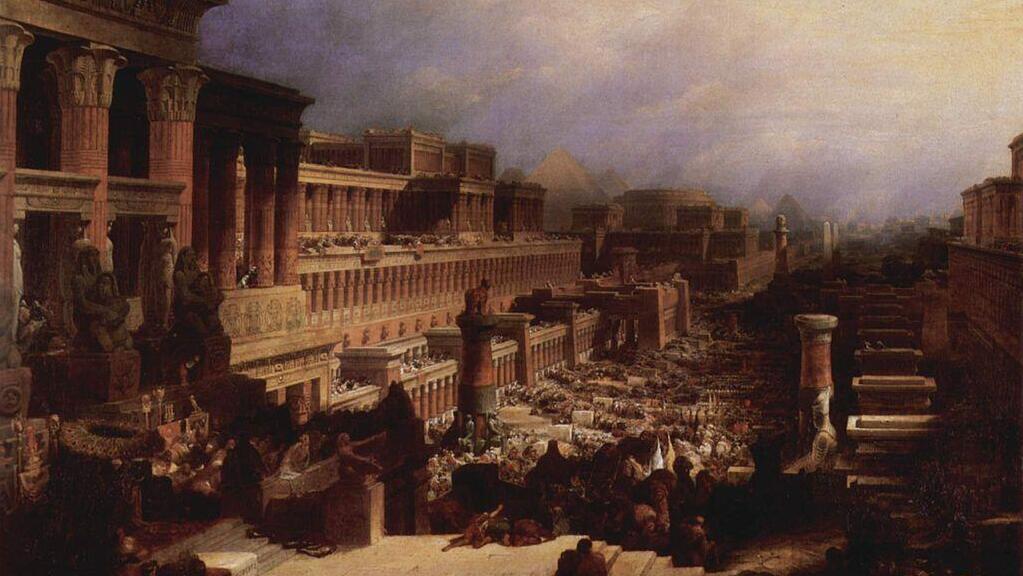

The Israelites leaving Egypt by David Roberts, 1830
(Illustration: Wikimedia Commons)
What do we know about the Israelites and Ancient Egypt following the Exodus story, do the sources say anything about its aftereffects?
“The entire Tanach focuses on the Exodus, there’s no event mentioned more times. What’s also interesting is when we look at the history of Egypt assuming there was some kind of Exodus event, even if not fully the way it appears in the text, what we see during the 13th century BCE in the Egyptian sources is that Egypt is greatly weakened thereafter.”
During the 12th century BCE, an enigmatic event took place throughout the Ancient Eastern Mediterranean known as the Bronze Age collapse. What scholars believe to be a combination of mass migration and environmental shifts led to the destruction of ancient cities and the collapse of important and impactful ancient cultures in the region, including the Myceneans, Minoans, Hittites and Egypt’s New Kingdom.
 Prof. Joshua Berman Bar-Ilan University
Prof. Joshua Berman Bar-Ilan University“What we need to understand about ancient Near Eastern historical writing is that generally, and particularly regarding Egypt, they never wrote things down so that we could discuss what really happened. What they were doing when writing on their monuments and temples was either propaganda for the people, or more likely and primarily a report to the gods to laud themselves in front of them. They don’t talk about the bad news, certainly not military defeats,” Berman explains.
“What’s interesting is that the books of Joshua and Judges, which come right after the Torah, make almost no mention of Egypt. In the Torah, Egypt is the greatest empire, and so this shows that the books of Joshua and Judges fit with what we know about history in that regard. Otherwise, it would be weird to see Egypt being so powerful in one book to then being scarcely talked about, but that actually matches the history,” he says.
(Photo: Courtesy of the International Organization of Jews from Egypt, Levana Zamir, the Zionist Archive))



